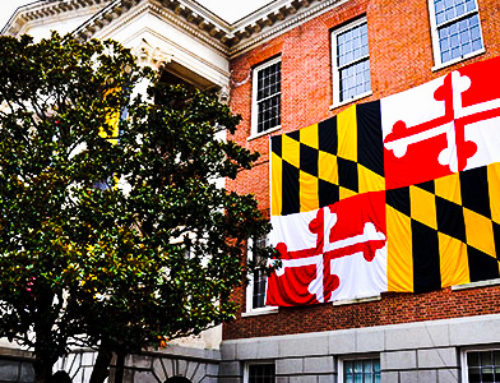View by Topic
Recent Articles
-
Congress Blocks California’s Gasoline Car BanSaturday, May 31st, 2025
-
EPA Will Keep Current Limits for “Forever Chemicals” in Drinking WaterSaturday, May 24th, 2025
-
Court Indefinitely Pauses SEC Climate Rule LitigationSaturday, May 17th, 2025
-
Maryland is About to Regulate Mold But is the Cart Before the HorseSaturday, May 10th, 2025
View by Month/Year
“Green Building Law Update” Headlines
Recent Articles & News from
Stuart Kaplow’s blog
at GreenBuildingLawUpdate.com
- EPA Will Keep Current Limits for “Forever Chemicals” in Drinking Water May 25, 2025
- Court Indefinitely Pauses SEC Climate Rule Litigation May 18, 2025
- Maryland is About to Regulate Mold: But is the Cart Before the Horse? May 11, 2025
- BEPS Redux: The Most Far Reaching Environmental Legislation of the 2025 Maryland General Assembly May 4, 2025
Subscribe to the Green Building Law Update!
Stuart Kaplow brings his expertise and extensive experience to the table with his unique digital publication, "Green Building Law Update". Subscribers receive regular updates to keep them informed about important issues surrounding Environmental Law, Green Building & Real Estate Law, as well as the emerging demand for Environmental Social Governance (ESG).
Get fresh content through the lense of Stuart Kaplow's cutting-edge expertise, innovative commentary and insider perspective. Don't miss another issue! Subscribe below.

A Force Majeure Decision during the COVID-19 Pandemic
There has been much speculation and supposition about the interplay of force majeure provisions in leases and other contracts in response to government orders closing businesses during the coronavirus disease 2019 (COVID-19) pandemic, but now there is an authoritative court decision that may provide persuasive authority.
In a motion in a Bankruptcy case the landlord demanded payment of post petition rent from the Hitz Restaurant Group or that the Chicago restaurant vacate the premises immediately.
There is no dispute that under section 2.1 of the parties’ lease and the exhibit labelled “Minimum Base Rent Schedule,” rent was due on the first of each month.
The restaurant argues that its obligation to pay any post-petition rent is excused by the lease’s force majeure clause, which provision is similar to ones found in many leases and other contract, and provides,
“Landlord and Tenant shall each be excused from performing its obligations or undertakings provided in this Lease, in the event, but only so long as the performance of any of its obligations are prevented or delayed, retarded or hindered by. . . laws, governmental action or inaction, orders of government. . . . Lack of money shall not be grounds for Force Majeure.”
The restaurant argues that this clause was triggered on March 16, 2020, the effective date of an Executive Order issued by Illinois Governor J. B. Pritzker addressing the Covid-19 pandemic in Illinois. Section 1 of that Executive Order pertains to restaurants:
“.. all businesses in the State of Illinois that offer food or beverages for on – premises consumption – including restaurants, bars, grocery stores, and food halls – must suspend service for and may not permit on-premises consumption. Such businesses are permitted and encouraged to serve food and beverages so that they may be consumed off-premises, as currently permitted by law, through means such as in-house delivery, third-party delivery, drive-through, and curbside pick-up. In addition, customers may enter the premises to purchase food or beverages for carry-out.”
The Court concluded that the force majeure clause in this lease was unambiguously triggered by the Governor’s Executive Order. First, his order unquestionably constitutes both “governmental action” and issuance of an “order” as contemplated by the language of the force majeure clause. Second, that order and its extensions unquestionably “hindered” the restaurant’s ability to perform by prohibiting the restaurant from offering “on-premises” consumption of food and beverages. Finally, the order was unquestionably the proximate cause of the restaurant’s inability to pay rent, at least in part, because it prevented the restaurant from operating normally and restricted its business to take-out, curbside pick-up, and delivery.
It is significant to the analysis of the restaurant’s force majeure argument that Governor Pritzker’s Executive Order did not prohibit all restaurant operations in Illinois.
The Court’s analysis also, gratuitously, but instructively makes clear that force majeure clauses in contracts supersede the common law doctrine of impossibility or impracticability of performance. It then dispenses with the landlord’s arguments.
Landlord first argued that the force majeure clause was not triggered because the Governor’s Executive Order did not shut down the banking system or post offices in Illinois, and the restaurant therefore would have physically been able to write and send rental checks. The court found that a specious argument and rejected it out of hand.
Second, landlord characterizes the restaurant failure to perform as arising merely from a “lack of money,” which it argues is not grounds for force majeure according to the lease’s own terms. The Court rejects that argument.
And third the landlord averred if the state government closed the business, the federal government was making SBA loans available, but the judge found no support in the lease or in law that the tenant must apply for a loan before invoking force majeure.
Nevertheless, the restaurant is not off the hook entirely. Governor Pritzker’s Executive Order did not prohibit the restaurant from performing carry-out, curbside pick-up, and delivery services. The Court reasons that, to the extent that the restaurant could have continued to perform those services, its obligation to pay rent is not excused by the force majeure clause. The Court therefore concludes the restaurant’s obligation to pay rent is reduced in proportion to its reduced ability to generate revenue due to the Executive Order.
Neither party offered much assistance to the Court in determining the amount of the rent reduction but the restaurant offered only its estimation that 75% of the square footage of the restaurant, consisting of its dining room and bar, was rendered unusable by Governor Pritzker’s executive order.
The Bankruptcy judge, the Honorable Donald R. Cassling, in a move to “do justice” and that may well have far wider impact than just this case, applies the force majeure clause in part, granting equitable relief signaling that force majeure does not have to be all or nothing, ordering the restaurant to pay 25% of the base rent and 25% of its share of both the common area maintenance fees and real estate taxes.
This debtor friendly decision, among the first to decide the matter of force majeure in a COVID-19 impacted dispute, is not binding on other courts, but it may have a substantial impact on cases across the country, far broader than merely rent disputes but involving the full gambit of matters involving contracts, including because state courts often look to federal courts (including Bankruptcy courts) for precedential or, at minimum, persuasive authority in equitable theories.
The case is In re Hitz Restaurant Group, U.S. Bankruptcy Court, Northern District of Illinois, Eastern Division, June 3, 2020.









